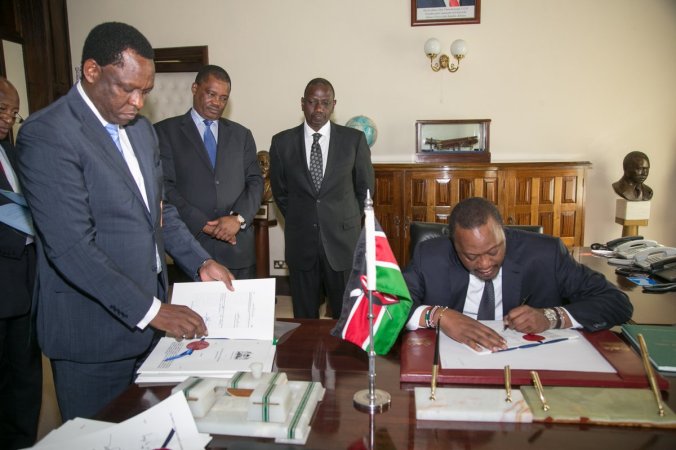
On 16 May 2018, President Uhuru Kenyatta (pictured above) assented to the Computer Misuse and Cybercrimes Bill, 2018. The Bill was passed by the National Assembly on 26 April 2018. Readers of this blog will note that, unlike the previous Computer and Cybercrimes Bill, 2017 that was first tabled in Parliament, the Act now contains some new provisions relating to blockchain, mobile money, offences related to cybersquatting, electronic messages, revenge porn, identity theft and impersonation, as well as the newly created National Computer and Cybercrimes Coordination Committee. A copy of the Act is available here.
From an intellectual property (IP) perspective, the Act is significant for several reasons, including that it creates new offences and prescribes penalties related to cyber-infringements, it regulates jurisdiction, as well as the powers to investigate search and gain access to or seize items in relation to cybercrimes. It also regulates aspects of electronic evidence, relative to cybercrimes as well as aspects of international cooperation in respect to investigations of cybercrimes. Finally it creates several stringent obligations and requirements for service providers. Continue reading



